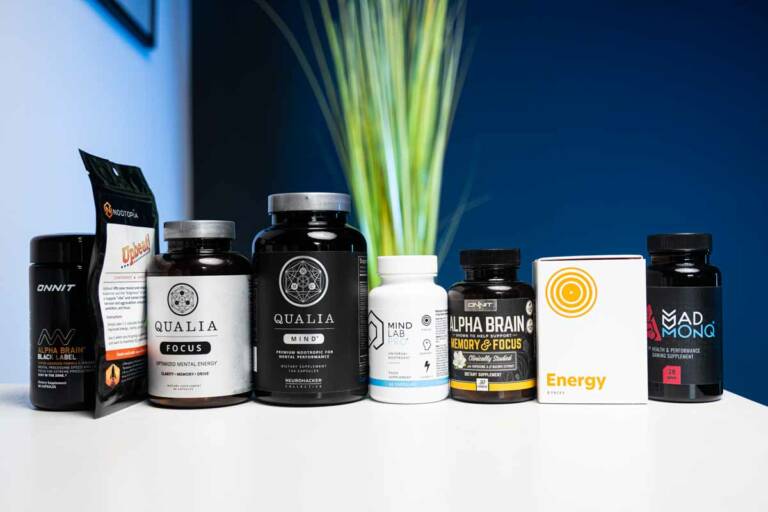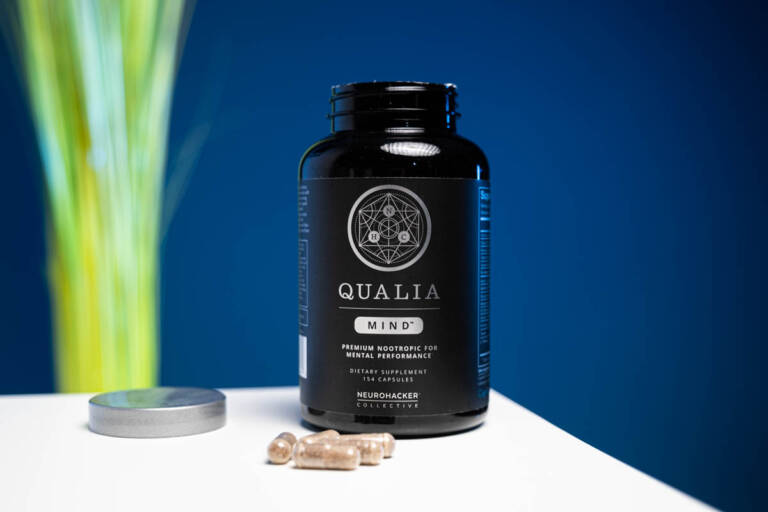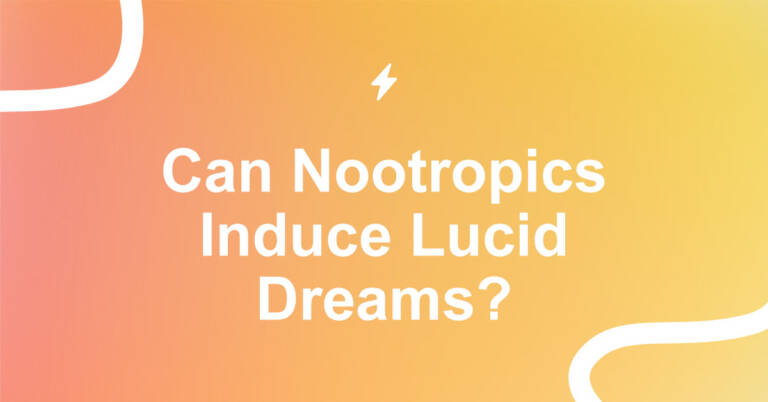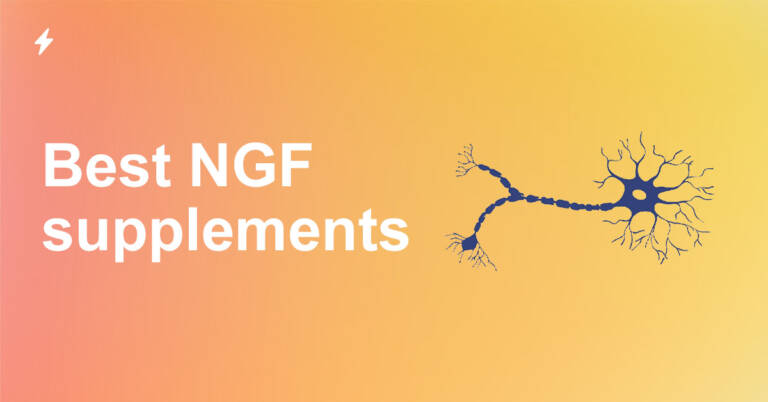If you track biohacking news like some people follow sports or fashion, you’re already familiar with nootropics and adaptogens. While these two terms are often used interchangeably, they aren’t exactly the same.
That said, both nootropics and adaptogens have the amazing ability to support mental and physical health. Wondering how these two stack up against each other in terms of nutrition and overall health benefits?
Read on to learn more!
What Are Adaptogens?

Adaptogens are ancient healing plants and herbs that have been used in both Ayurvedic and Traditional Chinese Medicine for thousands of years.
While many herbs and plants are nutritional powerhouses, adaptogens are a unique class of healing plants that help balance, restore, and support normal metabolic functions. [*]
This unique class of healing plants has different therapeutic properties and supports different functions. For example, some adaptogens are stimulating, whereas others have relaxing or calming anti-inflammatory properties.
Some adaptogens help with physical and mental stress, and some support cognitive performance or have a calming effect on the nervous system. Some adaptogens provide immune support while others improve physical performance.
For a plant or herb to qualify as an adaptogen, it has to be [*]:
- Non-specific
- Non-habit forming
- Non-toxic
- Safe for long-term use
We’ll talk more about some of these a little later, but for now, just know that adaptogens are natural ingredients that have a normalizing effect on the body. Curious about the kind of plants and herbs that qualify as adaptogens?
Examples of adaptogens include Panax ginseng, ashwagandha, holy basil (tulsi), Rhodiola rosea, eleuthero, and turmeric. There are also medicinal mushrooms such as reishi, and cordyceps.
You may also be familiar with the medicinal mushroom called lion’s mane.
In case you’re wondering, the term “adaptogens” was coined by Dr. Israel Brekhman, aka the “Father of Adaptogens.” After extensively studying certain plants and herbs, Dr. Brekhman introduced the health benefits of these agents to the world. [*]
The rest is, as they say, history!
How Do Adaptogens Work?
Adaptogens work by doing exactly that; they help you adapt to your environment, situations, and stress. Best of all, they do this in gentle and non-intrusive ways.
What makes adaptogens unique is that these powerful groups of plants and herbs are non-specific and non-habit forming. What does this mean? Adaptogens are non-specific, and unlike drugs, they don’t target a specific pathway. [*]
That’s to say, they don’t work on one single body system or organ. Instead, adaptogens allow your body to adapt to different situations. They do this by activating their healing properties to match whatever is going on in your life.
Adaptogens are also non-habit forming. In other words, these plants and herbs aren’t like addictive drugs that make you want to take them repeatedly. You take them when you need them with no strings attached!
But what if you take them over a long period and suddenly stop? No problem. Adaptogens don’t have withdrawal symptoms, so you can take them on a regular basis or stop and start to suit your needs.
Since adaptogens focus on reducing mental and physical stress, their main goal is to help you become more adaptable to life. This is important because modern life is full of environmental triggers, situations, and other outside factors that can create physical and mental imbalances. [*]
Adaptogens Benefits
Adaptogens are non-toxic plants and herbs that are safe for long-term use. Earlier we mentioned that adaptogens are non-specific. This means that adaptogens don’t target a specific pathway.
Their non-specific characteristic means that it doesn’t matter what’s out of balance. Adaptogens help restore balance.
For example, if you’re under a significant amount of stress, adaptogens help your body adapt by developing stress resistance. How does this work exactly?
When you’re stressed, your adrenal glands act as shock absorbers and release stress hormones. Some of the main stress hormones include adrenaline and cortisol – the primary stress hormone made by the adrenal glands. [*]
While this is fairly harmless for short periods, chronic stress causes your adrenal glands to be dysfunctional and leads to adrenal fatigue. [*]
That’s not all. Elevated cortisol levels are linked to health issues, including high blood pressure, cardiovascular disease, weight gain, and more. [*] [*]
Adaptogens’ ability to improve stress response is key in our modern world. Especially when we consider how stress-related disorders have become a permanent fixture.
Note: Adaptogens interact with certain prescription medications, so check with your doctor before taking them.
Types of Adaptogens
You already know that adaptogens have a normalizing effect on the body. They balance the endocrine system and increase blood flow to the central nervous system. [*]
Some adaptogens promote sleep, while others like ashwagandha and Rhodiola are known for safely and effectively improving stress resistance. [*] [*]
But adaptogens do more than hack stress. For instance, ashwagandha nourishes and strengthens the nervous system. This powerful herb helps enhance brain health by [*]:
- Protecting against memory loss
- Enhancing brain function
- Enhancing memory
Other adaptogens like lion’s mane mushroom improve energy and support the immune system. [*] In both Ayurvedic and Traditional Chinese Medicine, the lion’s mane has medical and culinary uses.
Another adaptogen that boosts the immune system and is a powerful energy booster is the reishi mushroom. This super mushroom also has anti-cancer properties. Now that’s a superpower!
Who Should Take Adaptogens?
Adaptogens can be taken by those who are looking for stress relief, more energy, mental clarity, immune support, and more.
If you’re a student who wants to focus better, or you have an awful boss whose emails make your heart skip a beat, adaptogens are for you.
If you’re looking for something that reduces fatigue, adaptogens can do wonders. If you simply want to support your immune system or improve energy levels, look no further than adaptogens.
Whoever you are, and whatever life throws you, adaptogens can help you find the balance and resilience you need to soldier on.
What Are Nootropics?

Known as brain boosters or cognitive enhancers, nootropics are essentially “smart drugs” that positively affect cognitive performance and brain health.
If you’re wondering where this strange-sounding name comes from, wonder no more. Nootropics are derived from two Greek words nous (mind), and trepein (to bend or turn).
In other words, these special compounds literally “turn” or “bend” your mind.
As an umbrella term for natural or man-made chemicals, nootropics are proven to improve memory, grow brain cells, boost cognition, and focus. [*]
Caffeine – with its stimulating effects – is the world’s most popular nootropic and a natural brain enhancer. Other nootropics you may be familiar with include ginkgo biloba, Bacopa monnieri, choline, and some mushrooms.
Did you know that Omega-3 fatty acids are also nootropics? If you regularly eat fatty fish, flax seeds, walnuts, and chia seeds for example, then natural nootropics are already part of your diet!
Since the brain is full of fat, healthy fats including omega-3 fatty acids are key for improving cognitive functions and protecting against degenerative diseases. [*] [*]
Whether natural or synthetic, the goal of nootropics is to give you a mental “edge” so you can reach peak mental performance.
Examples of nootropics include minerals, amino acids, herbal remedies, vitamins, dietary supplements, and even stimulants like caffeine. You may already be familiar with nootropics such as L-theanine – an amino acid found in tea that is known for reducing stress.
How Do Nootropics Work?
To understand how nootropics work, you need to know about neurotransmitters. These are chemical messengers in the body that are used by the nervous system to help neurons communicate with one another.
Neurotransmitters also help neurons (also known as nerve cells) transmit signals from nerve cells to target cells. [*]
There are more than forty neurotransmitters in the human nervous system. Some of the most important ones you may be familiar with include serotonin, acetylcholine, norepinephrine, and dopamine.
Here are some of the functions neurotransmitters help with:
- Manage pain
- Promote healthy sleep cycles
- Regulate appetite
- Provide steady energy
- Improve our mood
- Promote healthy sleep cycles
As you can imagine, neurotransmitter imbalance disrupts all these important functions and impacts physical and mental health. [*] [*]
So what do nootropics have to do with neurotransmitters? The short answer – a lot!
The long answer is that nootropics help increase the production of neurotransmitters, including the following:
- Dopamine
- Serotonin
- Acetylcholine
- Norepinephrine
These chemicals also inhibit the reuptake of these neurotransmitters, which in turn allows them to stay longer in the blood circulation. [*] In some nootropics, this can activate nitric oxide to relax blood vessels.
Some nootropics also have the unique ability to bypass the blood-brain barrier. Consider the blood-brain barrier (BBB) as your brain’s security system.
This barrier, made of tightly packed cells, prevents toxic chemicals or substances from entering your brain. [*]
On the other hand, your BBB selectively chooses what can cross its barrier. This is why it only allows beneficial substances that your brain needs, such as water and oxygen.
However, some nutrients like Acetyl-L-Carnitine – found in foods such as avocados, meat, and milk – can cross this barrier. [*]
By doing so, they perform beneficial functions that support brain health. Here you can learn more about other mechanisms of nootropics.
Nootropics Benefits
Earlier we mentioned that omega-3 fatty acids are key for cognitive functions. But did you know that every cell in your body needs these essential nutrients? In particular, the brain and eyes.
While all omega-3 fatty acids are important, two types of essential fatty acids that are crucial for brain health are docosahexaenoic acid or DHA, and eicosapentaenoic acid or EPA.
Both DHA and EPA improve blood circulation in areas of the brain involved with neurocognitive testing and memory. [*]
DHA, for example, has been shown to help with memory and cognitive issues linked to Alzheimer’s. [*] EPA, on the other hand, is essential for overall brain health and supports cognitive function.
Nootropics have an impressive list of benefits. They can [*]:
- Improve mental function
- Enhance cognitive function
- Promote brain health
- Boost focus and attention
- Improve memory
- Decrease stress and anxiety
If you’re thinking to yourself, that’s a rather long list of impressive functions, you’re right!
Bacopa, for example, has been used in Ayurvedic medicine for thousands of years to improve memory and learning capacity. This herb has been shown to inhibit inflammatory pathways in the brain and sharpen the mind. [*]
In one study, for example, researchers found that bacopa was able to “demonstrate immense potential in the amelioration of cognitive disorders, as well as…cognitive enhancement in healthy people.” [*]
Types Of Nootropics
We’ve already touched on how nootropics come both in natural and synthetic forms. The natural forms include caffeine, omega-3 fatty acids, and herbs like Bacopa. For example, nootropic supplements like Qualia Mind contain natural nootropics such as Acetyl-L-Carnitine, Bacopa monnieri, and Ginko biloba.
There are also other types of nootropics, including peptide nootropics, choline and acetylcholine intermediates, and synthetic B-Vitamin-derived nootropics.
Who Should Take Nootropics?
If you’re looking for something that enhances cognition, increases focus, or helps with memory, then nootropics are ideal. Whether you’re an athlete looking to improve your peak performance or a student who wants to ace your exams, nootropics offer a lot.
Many competitors who need to stay alert, think and make decisions quickly, or improve their hand-eye coordination also benefit from nootropics.
Nootropics are also great for seniors or those who want to protect their brains from cognitive deficiencies associated with old age.
This is particularly important as nootropics promote neurogenesis which is the brain’s ability to form new cells. [*]
Nootropics And Adaptogens
That was a lot to digest! By now you know that nootropics and adaptogens are very special for both mental and physical health. But what are their similarities and differences?
Adaptogens are powerful natural plants and herbs that help defend the body against chemical, physical and biological stresses. They offer immune support, have a calming effect, and help you adapt to whatever challenges, stresses, or events going on in your life.
They hold your hand so you stay balanced even when things in your life are out of balance.
And the best part? Adaptogens can be taken at any time, and for long periods of time without worrying about side effects or dependence.
Nootropics, on the other hand, help enhance cognitive performance, increase focus and energy, and support overall brain health.
Unlike adaptogens, nootropics have synthetic versions. In other words, while adaptogens are plants and herbs straight from nature, some nootropics are created in labs to mimic natural ingredients.
While adaptogens have different effects on the body and brain, their main function is their ability to relieve stress. This is different from nootropics which target brain pathways to enhance memory and overall brain performance.
While nootropics and adaptogens typically have distinct characteristics, there’s often a crossover between the two. For example, some plants and herbs are both adaptogens and nootropics. Can you guess some of them?
Well done if you’ve guessed Rhodiola rosea and Ginkgo biloba!
One exciting area of research focuses on combining adaptogens and nootropics to create synergistic pairings. The aim is to create power “couples” that are powerful on their own, but super powerful together.
Synergistic pairings have another key benefit. For example, while some ingredients deliver different results based on their separate actions, they offer results that complement each other when paired together.
An example of this is when the amino acid L-theanine is combined with caffeine. Some studies show that by pairing this calming amino acid with a stimulant like caffeine, you get the best of both worlds. [*]
That’s to say, alertness and improved attention, but without the caffeine jitters. Win-win? You bet!
Verdict
Both adaptogens and nootropics have something for everyone. If you’re after stellar brain boosters, then nootropics are for you. If you want bioactive compounds that reduce stress, improve mood, help you stay focused, and create balance, then adaptogens are a great choice.
If you want to get the best of both worlds, you can combine dietary nootropics and adaptogens with nootropics supplements that contain both adaptogens and nootropics.
Click below to check our list of the best nootropic supplements on the market.






